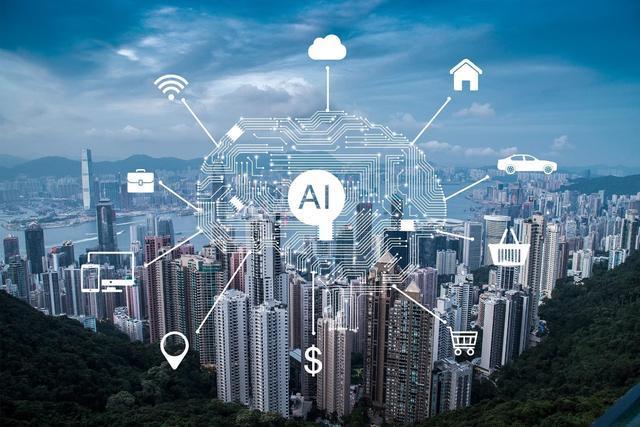



On June 10, 2025, the Office of the Central Cyberspace Affairs Commission (which is also the Cyberspace Administration of China, CAC) and the State Administration for Market Regulation (SAMR) jointly issued national policy document name the Guideline on Standardization of Intelligent Social Development and Governance (hereinafter referred to as “the Guideline”)
This document is drafted under the requirements and tasks set up in the Opinions on Accelerating the Construction of a Unified National Market (issued by the State Council in March 2022) and the National Standardization Development Outline (Issued by the National Standardization Administration of China in October 2021). It puts forward a set of national guidelines that are designed to ensure the safe, fair, and beneficial integration of smart technologies (such as artificial intelligence etc.) into society. It aims at mitigating or solving new challenges such as threats to privacy, fairness, and employment brought by technologies like self-driving cars, smart healthcare, and smart cities while they bring significant convenience. The core goal of the Guideline is to establish a common set of benchmarks and a standard framework to anticipate and address these issues proactively, guiding the healthy development of technology.
 The Guideline outlines three fundamental principles that should be followed in the development and application of technologies.
The Guideline outlines three fundamental principles that should be followed in the development and application of technologies.
First, technologies should promote social well-being and harmony by aiming for a better society and an improved quality of life. Their development must avoid creating social conflict or discrimination and should ensure fair benefits for everyone.
Second, it is essential to protect individuals and safeguard their rights. This includes ensuring the safety, privacy, freedom of choice, and other fundamental rights of every person. Additionally, the needs and usage preferences of diverse groups, such as the elderly or vulnerable populations, must be respected.
Third, innovation should be advanced responsibly. Both technology developers and users must bear responsibility to ensure the safety and controllability of technologies. Management systems should be flexible and efficient to respond to risks promptly, while also encouraging all sectors of society to participate in rule-making.
The Guideline further emphasizes the need to clarify the application scenarios of smart technologies by identifying, defining, observing, and evaluating their related social impacts. This approach helps in preparing for potential risks and challenges. The application scenarios and impacts of intelligent society development and governance are categorized into three levels based on the objects of smart technologies.
At the microlevel, scenarios and applications act on individuals, examining how technologies like smart home systems and mobile apps influence personal behavior, emotions, and privacy.
At the mesolevel, scenarios and applications affect organizations and industries, exploring how innovations such as smart factories and smart hospitals transform company operations and industry standards.
At the macrolevel, scenarios and applications impact the whole society, analyzing how developments like smart cities and digital governments shape public services and government management.
To better assess technology's impact, the Guideline advocates for AI social experiments. These involve conducting small-scale pilot tests in real-world settings before full-scale implementation. Such experiments require careful selection of scenarios and participants, scientific measurement of all changes—both positive and negative—caused by the technology, strict risk prevention measures, and finally, summarizing lessons learned to generate improvement suggestions or new regulations.
The Guideline also establishes a comprehensive Standard System for Smart Social Development and Governance that includes five standard categories:
- Fundamental standards: defining core concepts and terminology.
- Standards for principles on development and governance: setting ethical and safety baselines that technologies must adhere to.
- Scenario application standards: providing detailed operational specifications for specific fields like healthcare, education, and urban management.
- Methodology and technical standards: explaining specific methods for impact analysis, experimentation, data management, and risk assessment.
- Evaluation standards: defining how to assess the ultimate effectiveness and risks of technology applications.
Foreign stakeholders are advised to be aware that, the central idea of the document is clear: all development and application of smart technologies must prioritize people, ensuring safety, fairness, and controllability. And the Guideline can serve as an operational guide to some extent for governments, businesses, and research institutions, mandating that safety, fairness, and controllability are non-negotiable boundaries when developing and using smart technologies. It promotes the use of scientific methods (especially pilot testing) to identify problems and guide development in order to ensure that these technologies deliver tangible benefits for all people and drive social progress.
BESTAO presents free monthly report on China compliance. It offers a comprehensive solution on observing various standards and regulatory activities in China. Sample of the monthly report please refer to:
https://www.bestao-consulting.com/detail?id=1740&status=bestao_library
Subscribe the free monthly report by register as a BESTAO website member at: https://www.bestao-consulting.com/login, or write an email to assistant@bestao-consulting.com.


